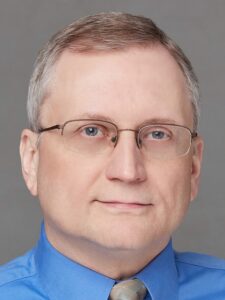Roger Kreuz, University of Memphis – Language and Identity
 Your identity is tied up in how you speak and write more than you might think.
Your identity is tied up in how you speak and write more than you might think.
Roger Kreuz, associate dean and professor of psychology at the University of Memphis, explains why.
Roger Kreuz is a Professor of Psychology at the University of Memphis, where he also serves as the Director of Graduate Studies for the College of Arts and Sciences. He earned his doctorate at Princeton University and was employed as a post-doctoral fellow at Duke University before taking his current position. Dr. Kreuz studies various aspects of language and communication and has written several books on these topics for a general audience.
Language and Identity
How much of our identity is revealed by how we speak and write? Could the characteristic ways we express ourselves be as unique as our fingerprints? Ted Kaczynski, better known as the Unabomber, was identified in this way. Based on clues in his writings, investigators made inferences about where he might have grown up, his age, and his level of education. And his brother David thought he recognized some of Ted’s idiosyncrasies in the Unabomber’s writings, such as the phrase “cool-headed logician.”
Similar techniques have identified literary authors. In 2013, “The Cuckoo’s Calling,” a crime novel, was published by first-time author Robert Galbraith. Suspicions about Galbraith’s real identity led researchers to compare the novel’s language to that used by other authors, including J. K. Rowling. Rowling was the closest match, and she ultimately admitted to being the book’s real author.
This linguistic sleuthing doesn’t always work. The anonymous author of “A Warning,” written by the so-called resister in the Trump administration, couldn’t be identified because its writer, Miles Taylor, hadn’t published anything else. But powerful computational techniques have identified several unknown authors and resolved cases of disputed authorship.
Our words are conduits for communication, but they are also a mirror that reflects more of our identity than we may realize.


